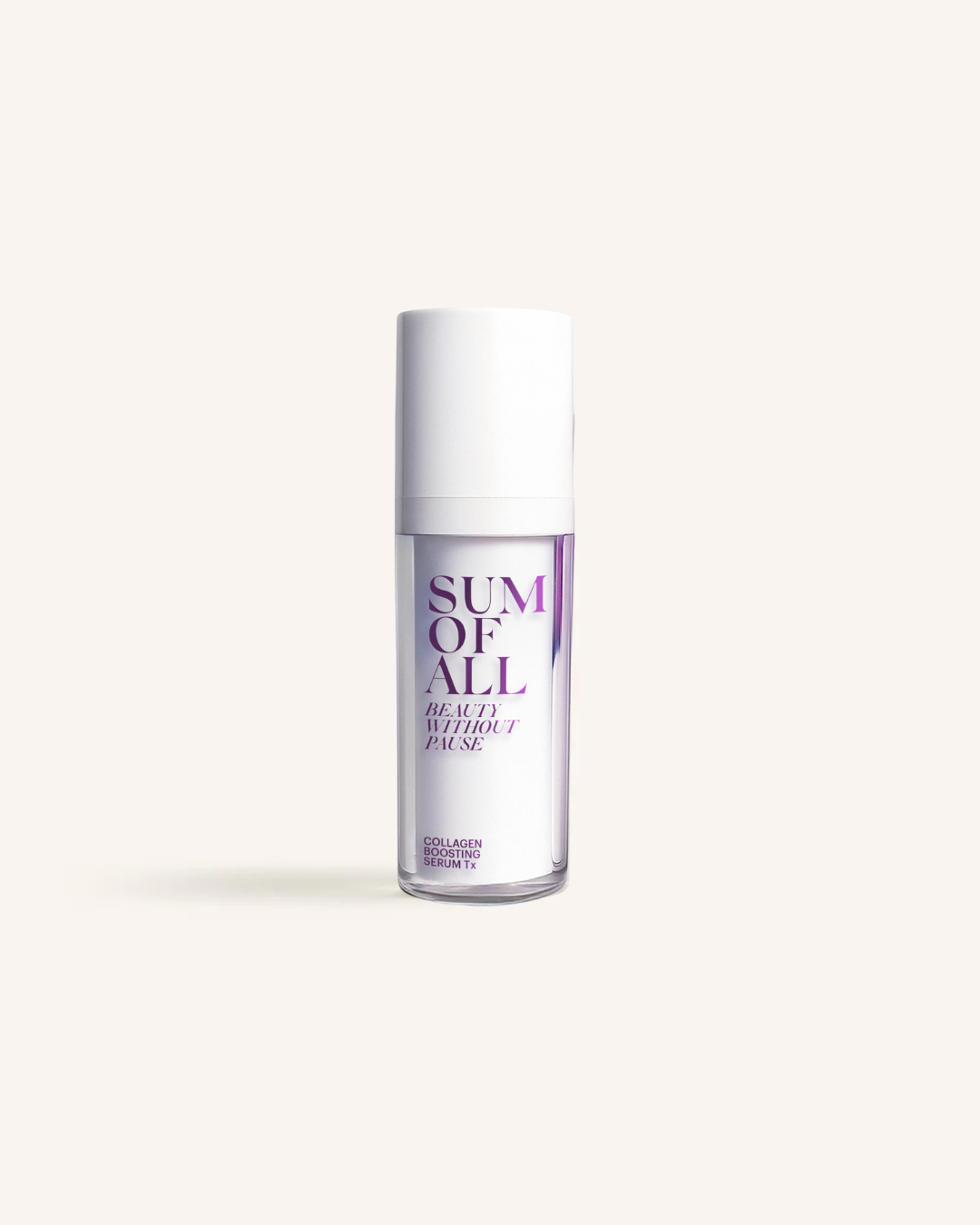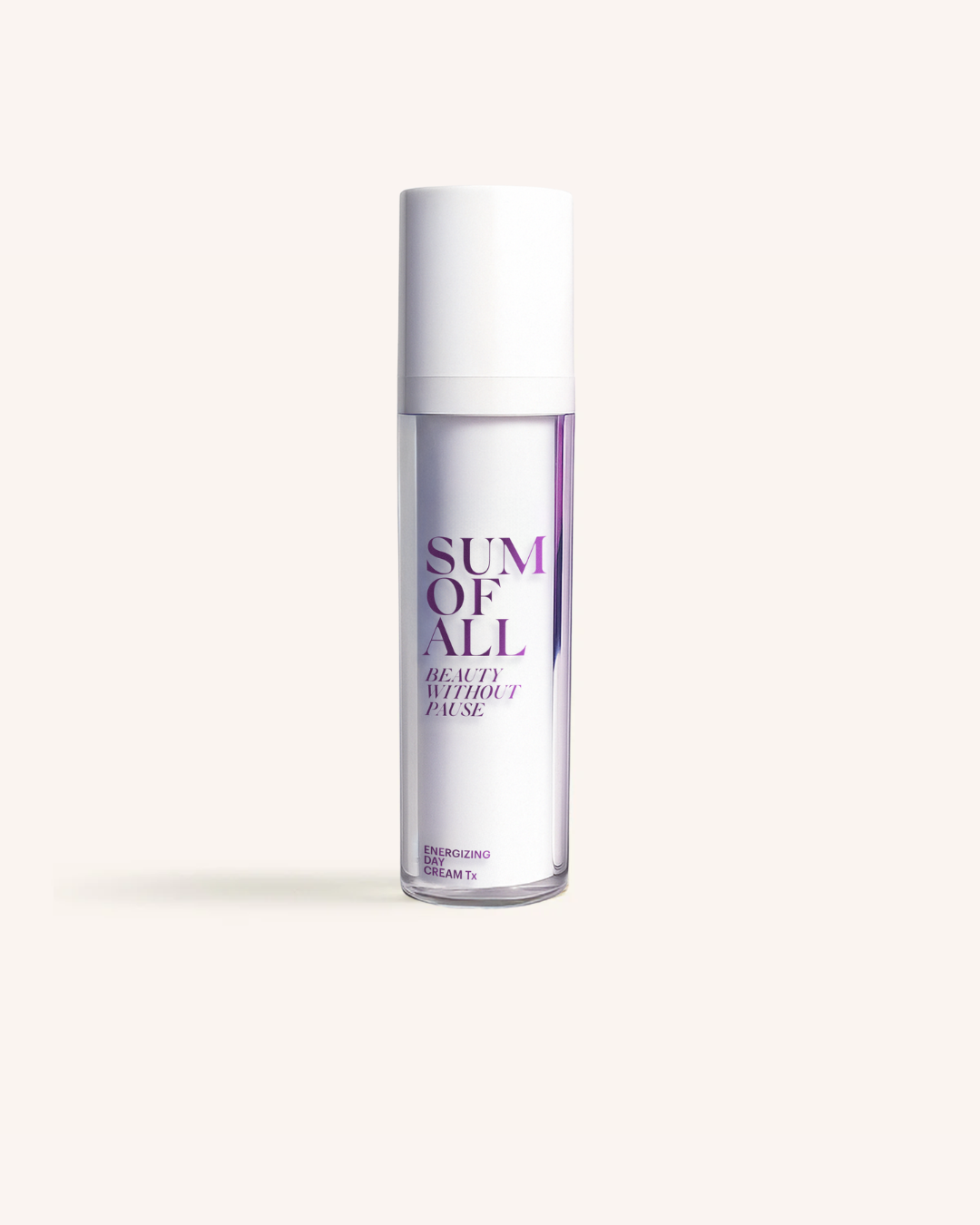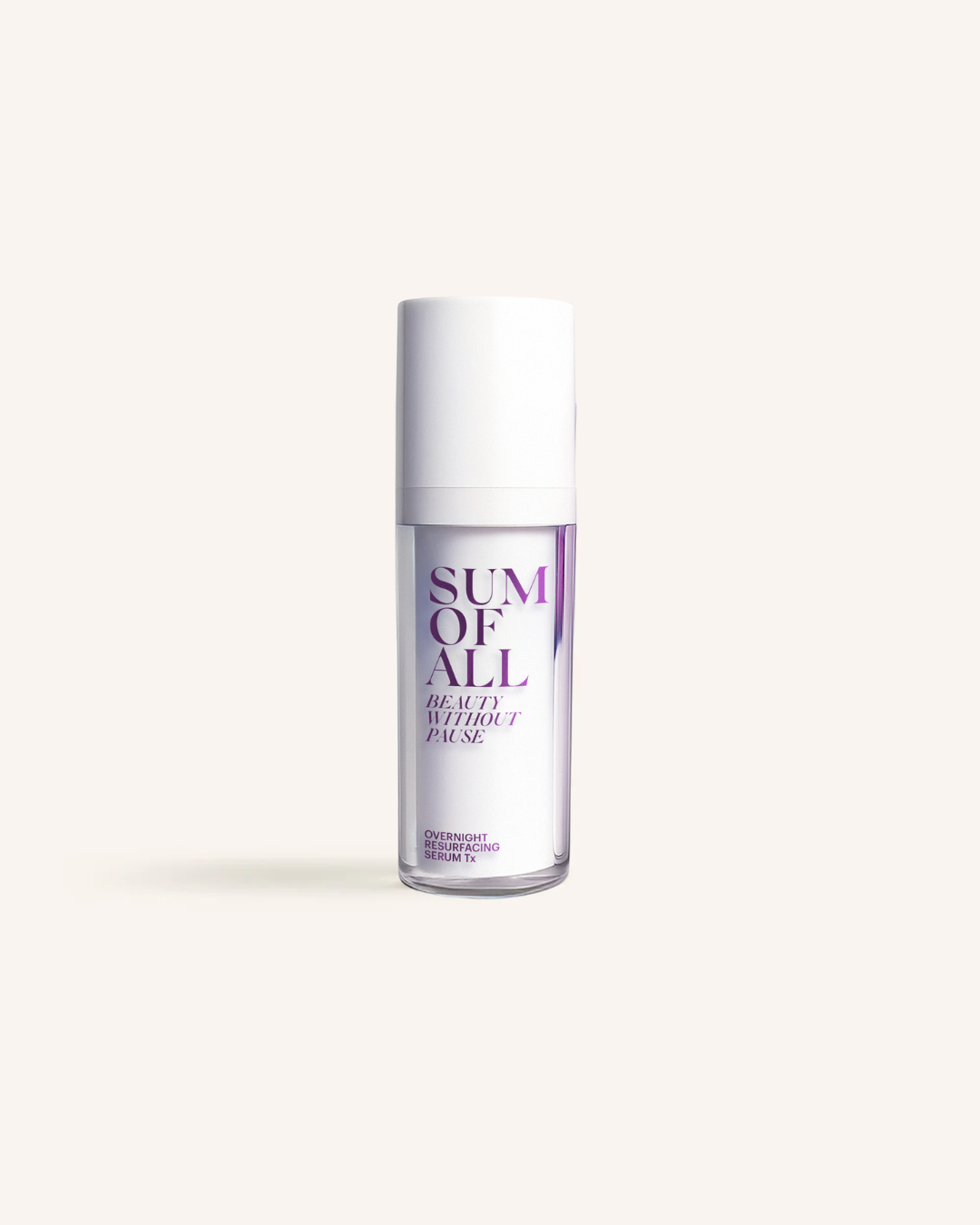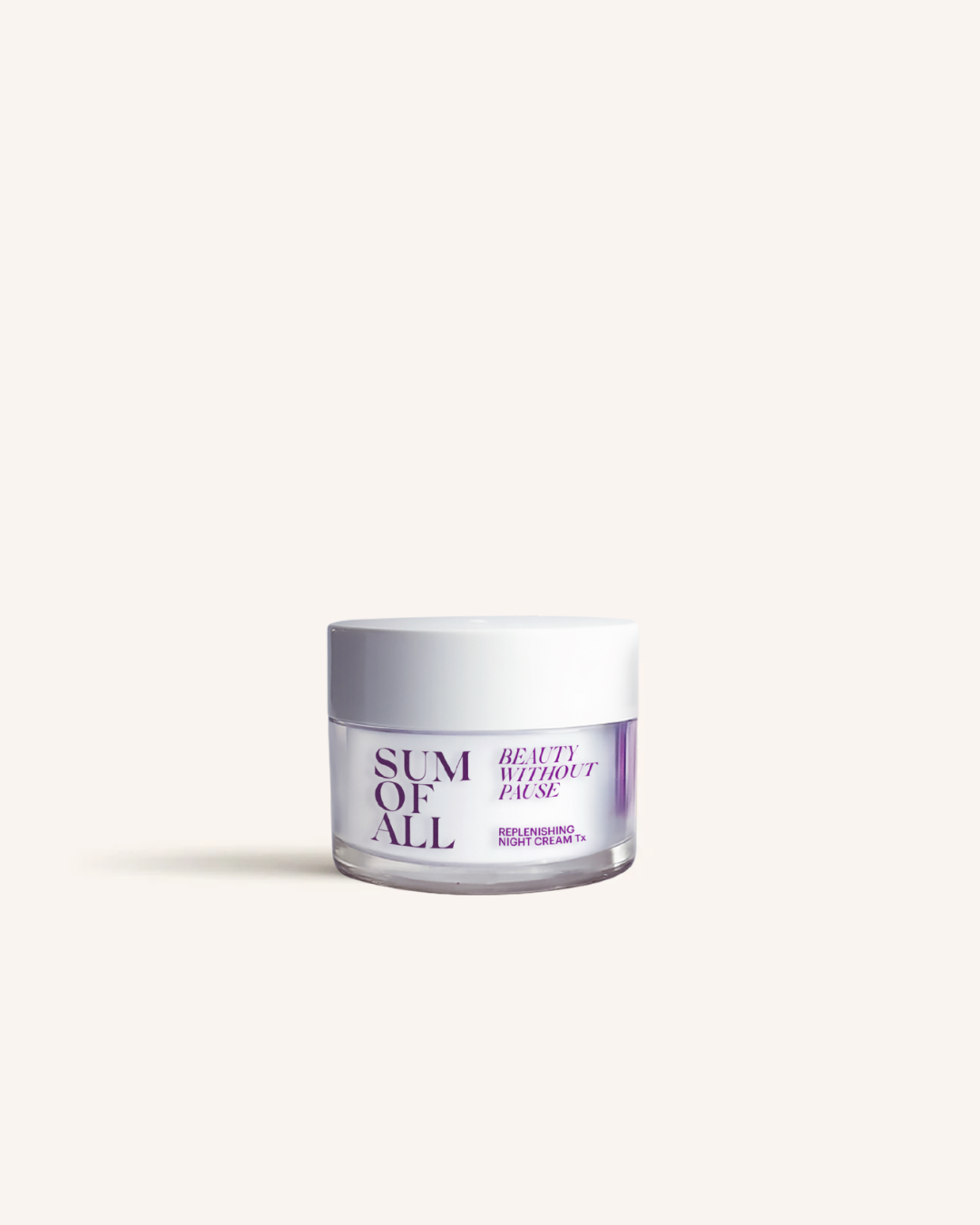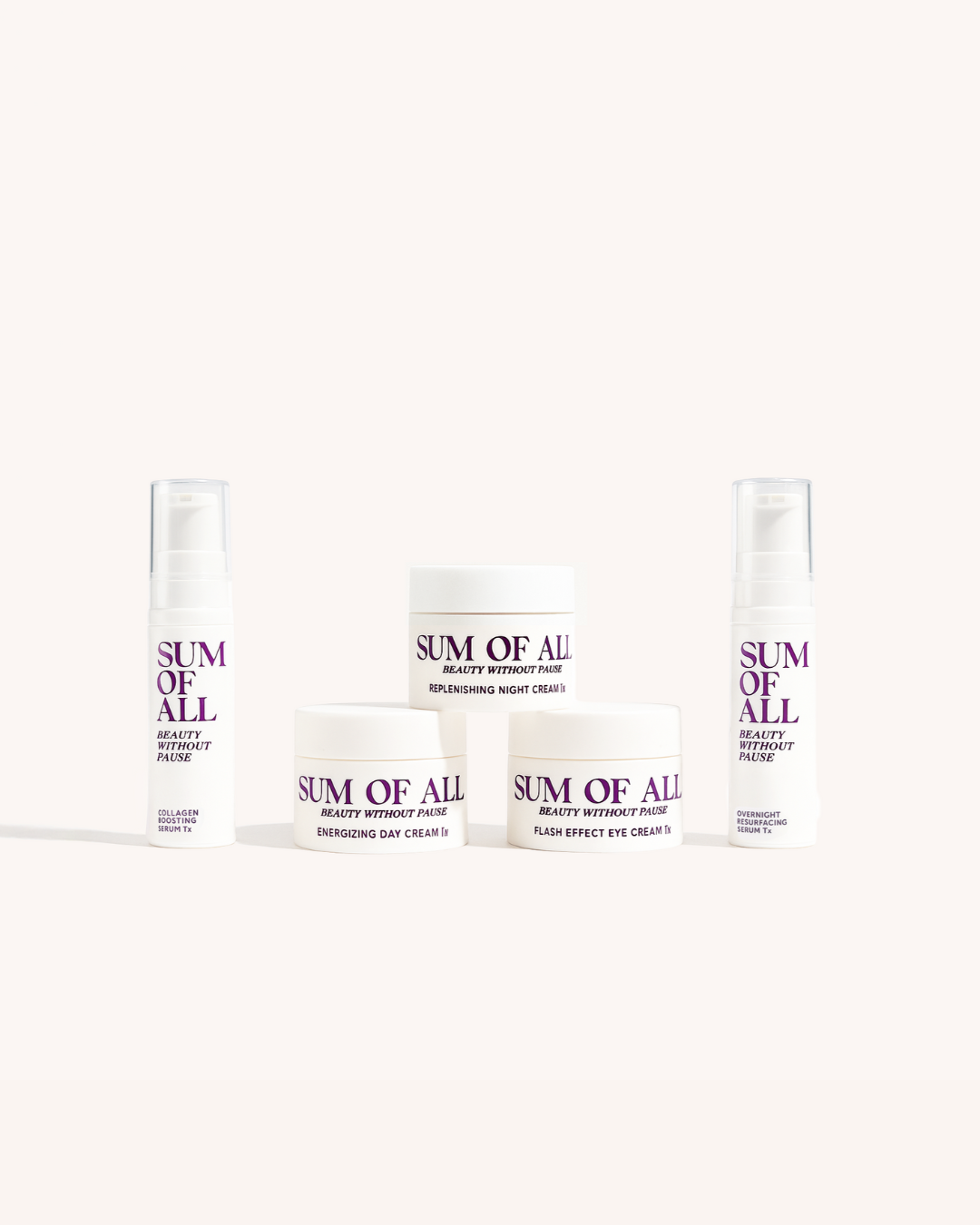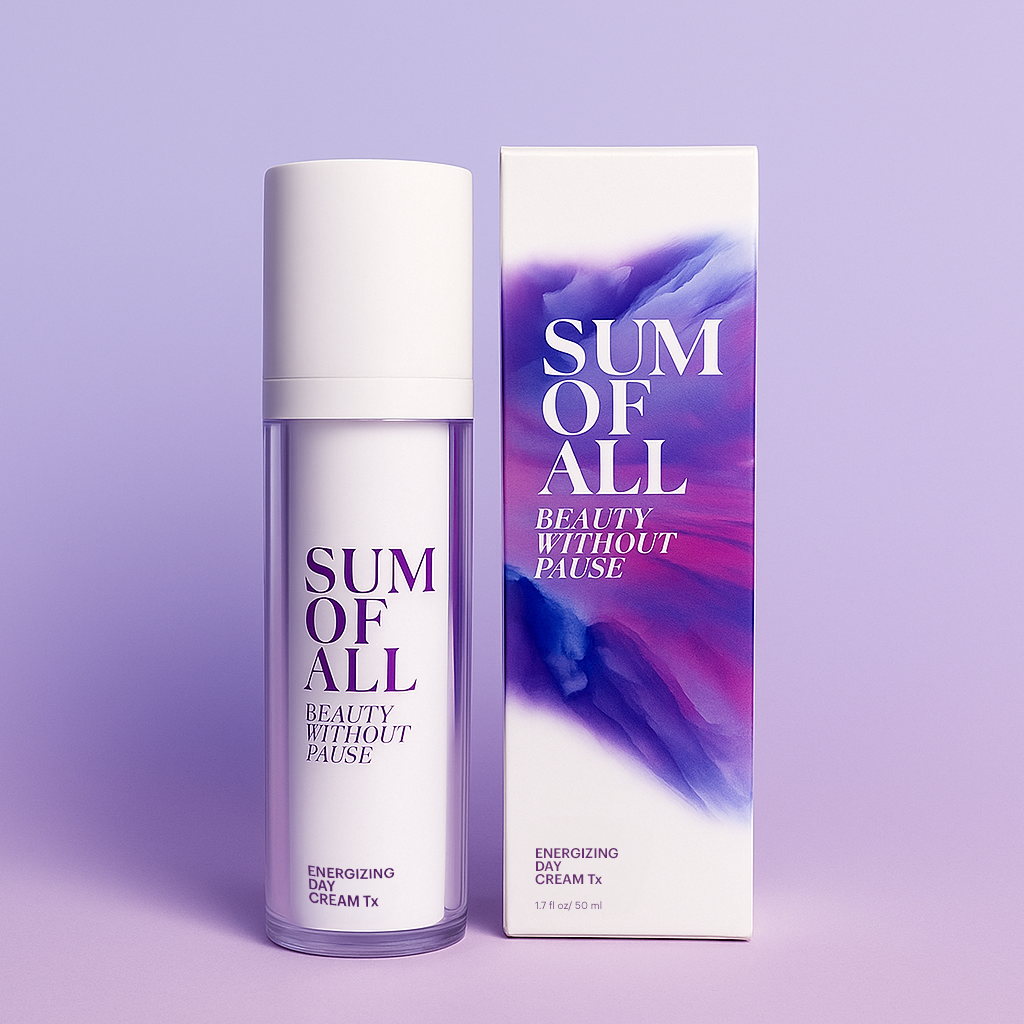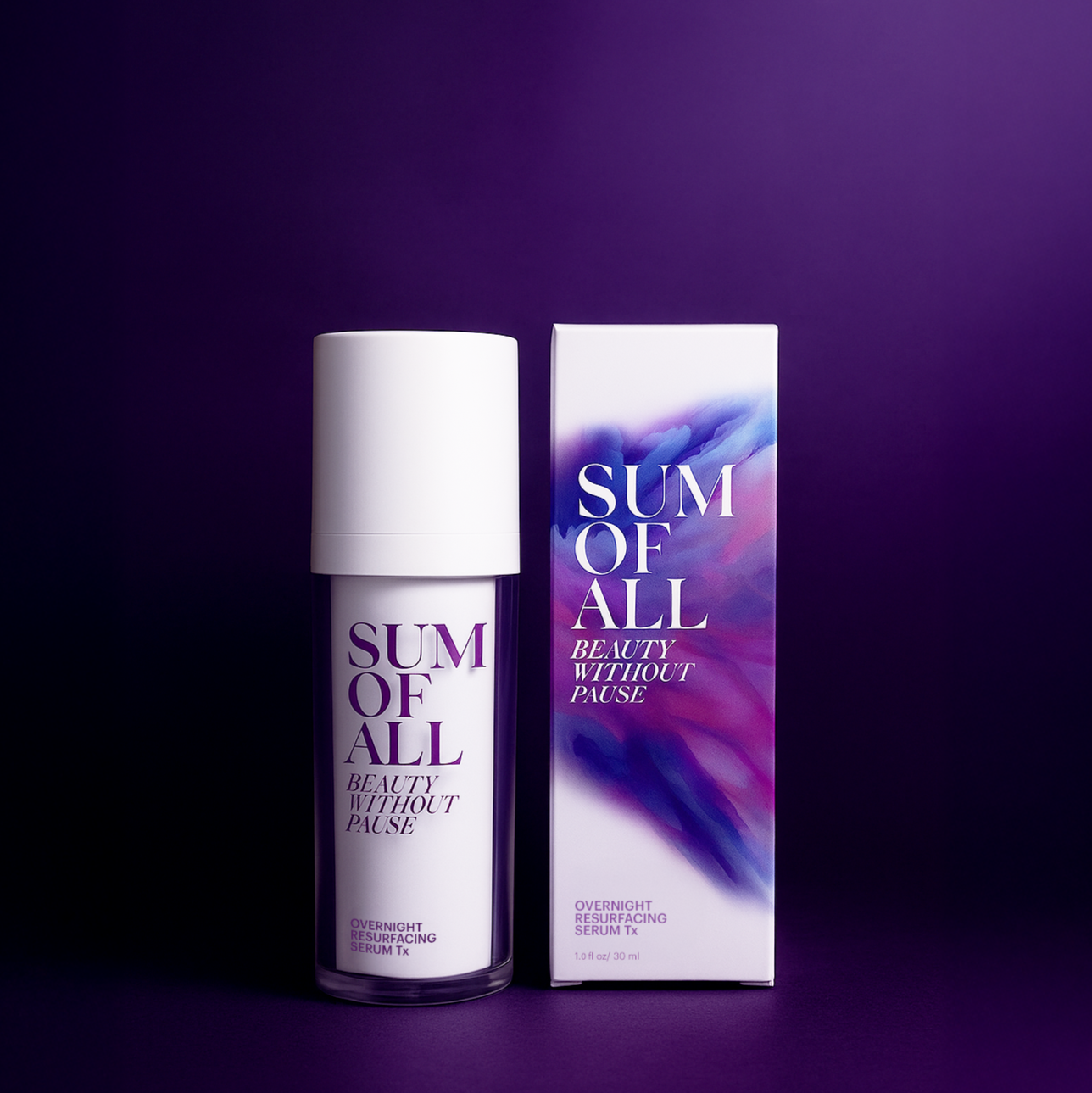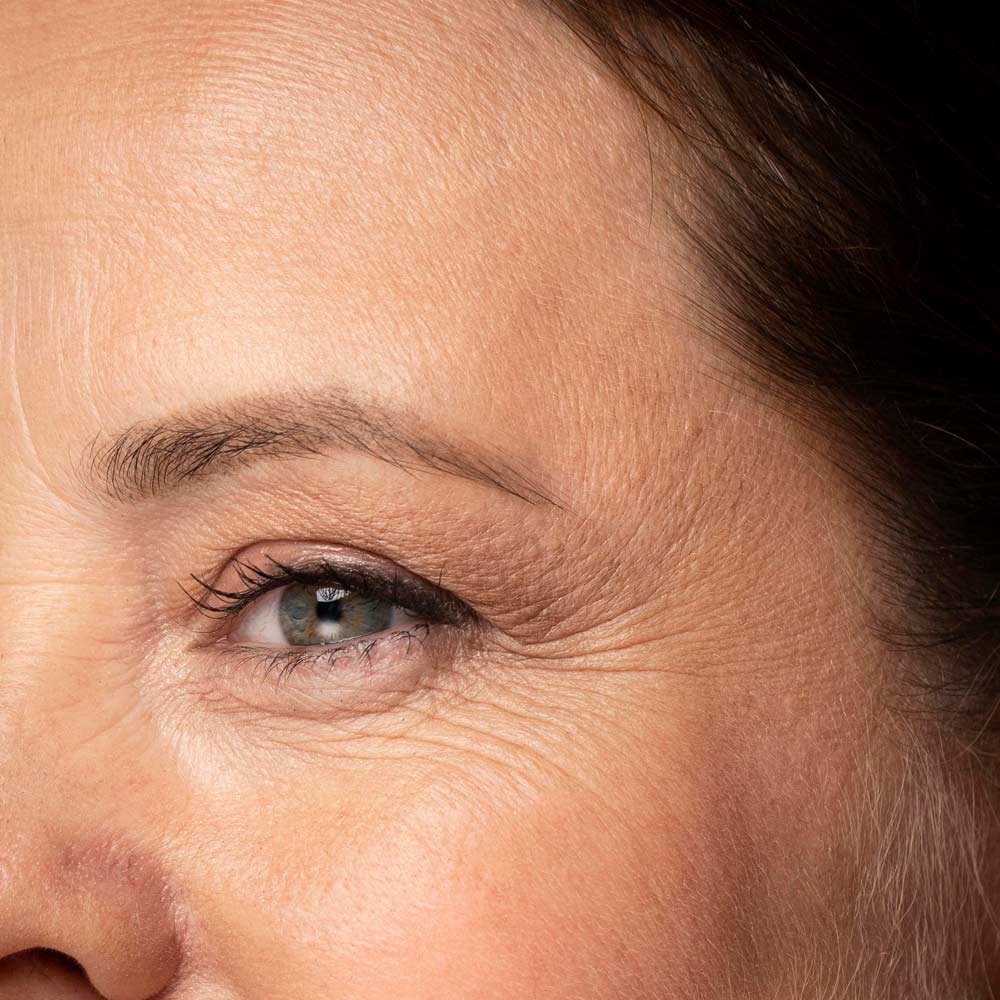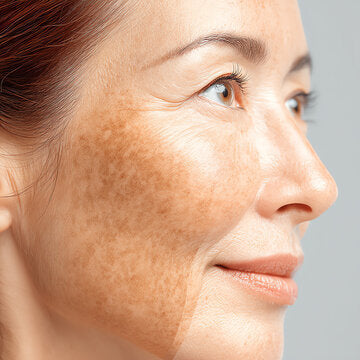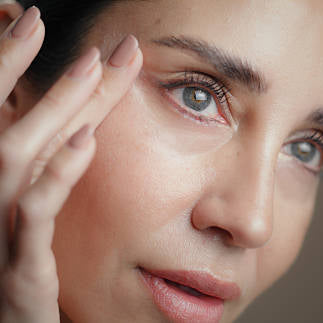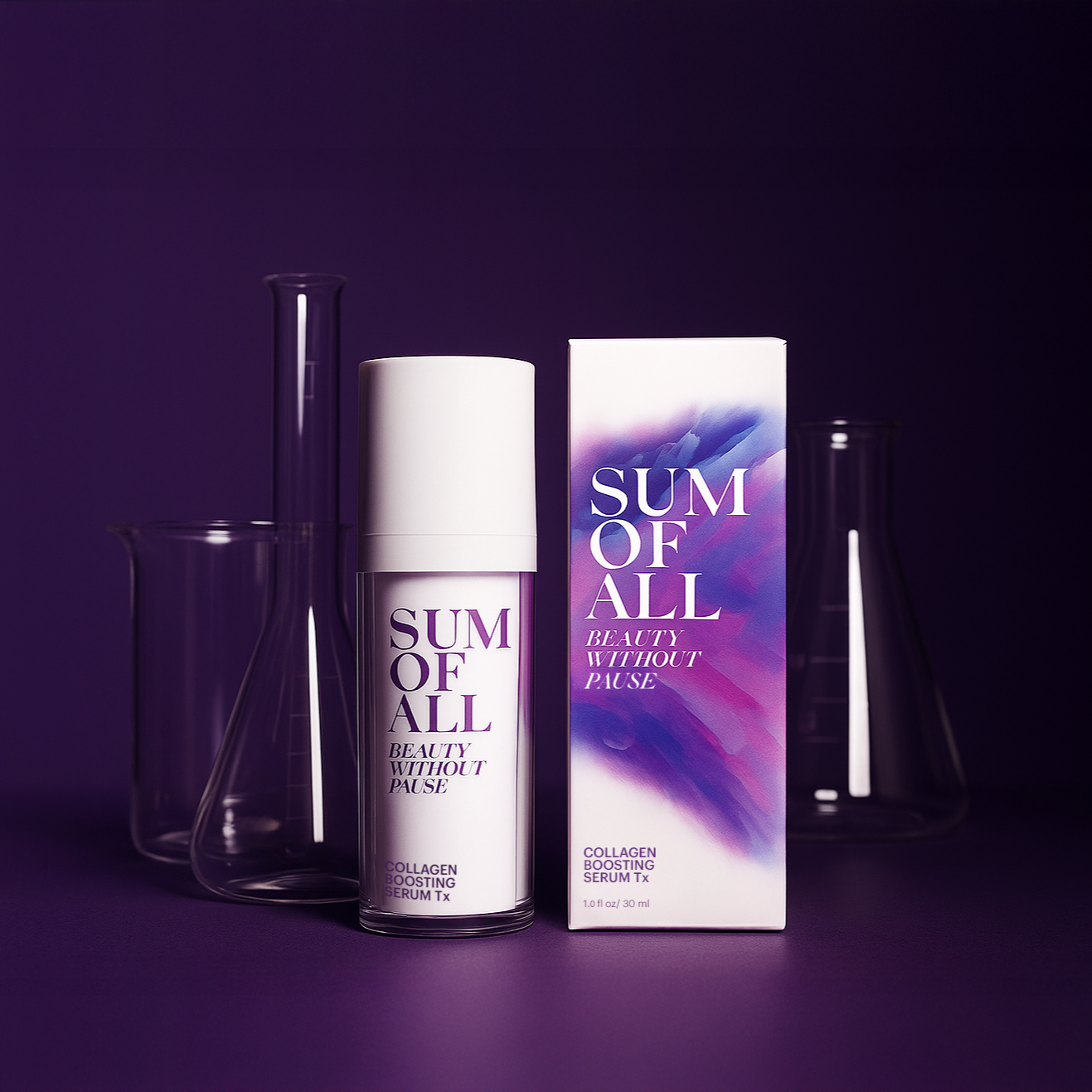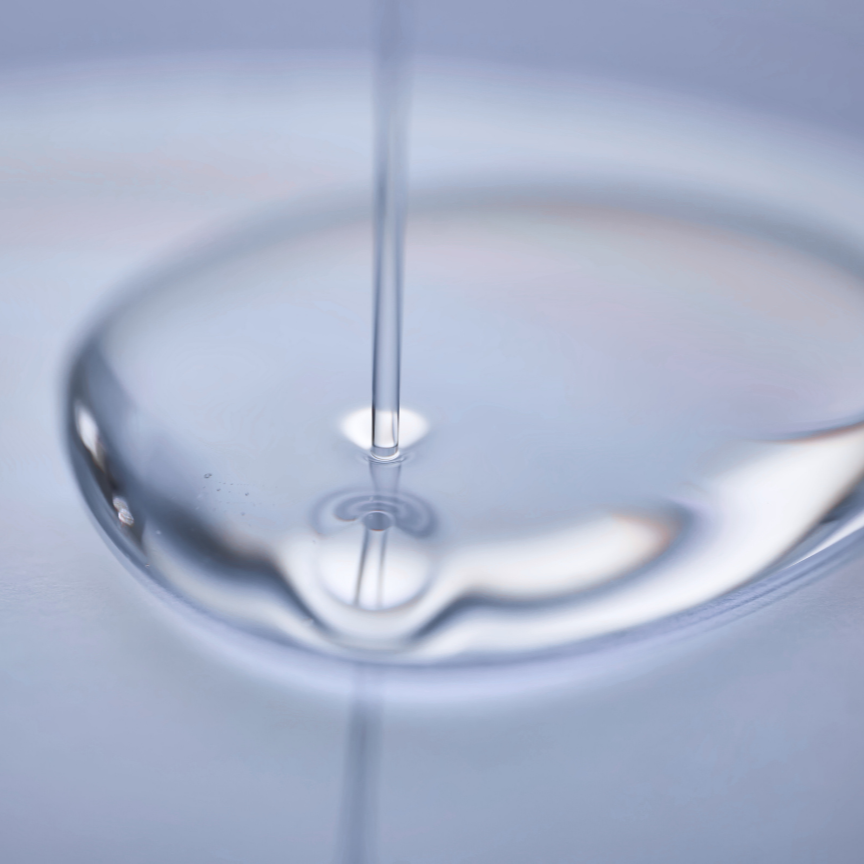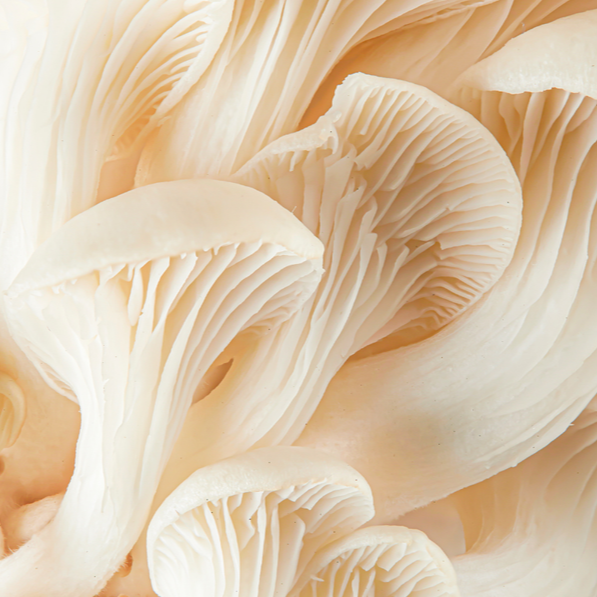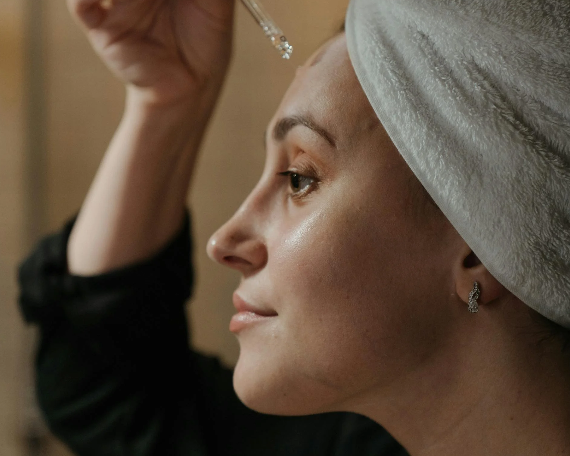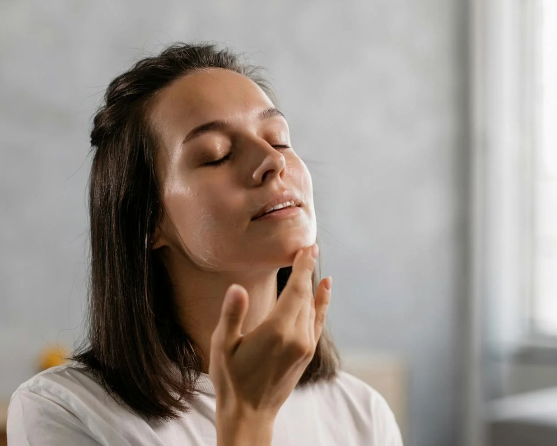Chlorella Vulgaris Extract, derived from a single-celled green freshwater algae, is gaining attention in modern skincare for its antioxidant capacity, nutrient density, and barrier-supporting properties. Rich in amino acids, vitamins, minerals, and chlorophyll, this botanical bioactive helps nurture skin that’s experiencing environmental or age-related stress - particularly during perimenopause and menopause.
While it isn’t a treatment for hormonal changes, chlorella extract can encourage a more radiant, balanced complexion with consistent use.
A Brief History of Chlorella in Skincare
Originally studied for its nutritional potential in the early 20th century, Chlorella vulgaris quickly drew scientific interest for its exceptionally high chlorophyll and protein content. As cosmetic research advanced, scientists discovered its value in reinforcing the skin’s extracellular matrix - the network that gives skin its strength and structure.
A 2013 study in Clinical, Cosmetic and Investigational Dermatology found that chlorella extract helps promote collagen synthesis and improves overall skin tone and surface uniformity. Today, it’s often used in formulations that target firmness, texture, and radiance.
How Chlorella Vulgaris Extract Supports Skin During Menopause
Menopausal skin often becomes thinner, drier, and more reactive due to hormonal shifts. Chlorella’s nutrient-rich profile - containing peptides, antioxidants, and minerals - helps support the skin’s barrier and hydration levels, providing gentle, restorative care.
Common Skin Symptoms During Menopause and How Chlorella Vulgaris Extract May Help
-
Uneven skin tone or dark spots: Promotes a more uniform complexion through nutrient support.
-
Thinning or weakened skin: Reinforces the skin’s surface structure through bioavailable peptides and minerals.
-
Dryness or dehydration: Improves hydration and barrier strength via supportive compounds.
-
Redness or sensitivity: Offers antioxidant protection to calm reactive skin.
-
Dull or tired-looking skin: Helps enhance clarity and radiance over time.
-
Fine lines and surface texture: May soften the appearance of lines when used with smoothing actives like hyaluronic acid.
-
Environmental stress or pollution exposure: Provides defense against oxidative damage.
Visible Results with Consistent Use
With regular application, Chlorella Vulgaris Extract can help the skin look more refreshed, resilient, and balanced. It’s often combined with barrier-supportive and antioxidant-rich ingredients to enhance hydration, elasticity, and tone - especially for mature or sensitive skin.
Alternative Names and Labeling Terms
Chlorella Vulgaris Extract may appear under different ingredient names, including:
-
Chlorella Vulgaris Extract
-
Hydrolyzed Chlorella
-
Chlorella Growth Factor (CGF)
-
Chlorella Pyrenoidosa Extract (a closely related species)
-
Microalgae ExtractAlgae Bioactive Complex (when blended with other algae-derived actives)
These terms all refer to bioactive chlorella derivatives used in skincare for their conditioning and protective benefits.
Used in: Collagen Boosting Serum
Sources
-
Farooq, S. M., et al. (2021). Chlorella vulgaris extract improves skin hydration and elasticity. Clinical, Cosmetic and Investigational Dermatology. https://pubmed.ncbi.nlm.nih.gov/33527418/
-
Chen, L., et al. (2018). Protective effects of Chlorella vulgaris on oxidative stress in skin cells. Phytotherapy Research. https://pubmed.ncbi.nlm.nih.gov/29742426/
-
Pereira, L. (2018). Algal polysaccharides in cosmetic formulations. Marine Drugs. https://pubmed.ncbi.nlm.nih.gov/29115564/
-
Papakonstantinou, E., Roth, M., & Karakiulakis, G. (2017). Hyaluronic acid: A key molecule in skin aging. Dermato-Endocrinology. https://pubmed.ncbi.nlm.nih.gov/29271409/
-
Kim, J. H., et al. (2019). Microalgae peptides and their role in skin health. Journal of Applied Phycology. https://pubmed.ncbi.nlm.nih.gov/30651226/
-
Galasso, C., et al. (2017). Microalgae-derived antioxidants and their skin-protective benefits. Marine Drugs. https://pubmed.ncbi.nlm.nih.gov/28671728/
- Becker, E. W. (2013). Microalgae for human and animal nutrition. Applied Microbiology and Biotechnology. https://pubmed.ncbi.nlm.nih.gov/28198785/
Read more

Collagen frequently appears in skincare discussions, especially regarding aging and wrinkle prevention. But what is collagen exactly, and why is it particularly significant during midlife? Collagen...

Japanese Tsubaki Oil, derived from the seeds of Camellia japonica, is a lightweight, non-comedogenic oil traditionally used in Japanese beauty rituals for its smoothing and nourishing qualities. Ri...


